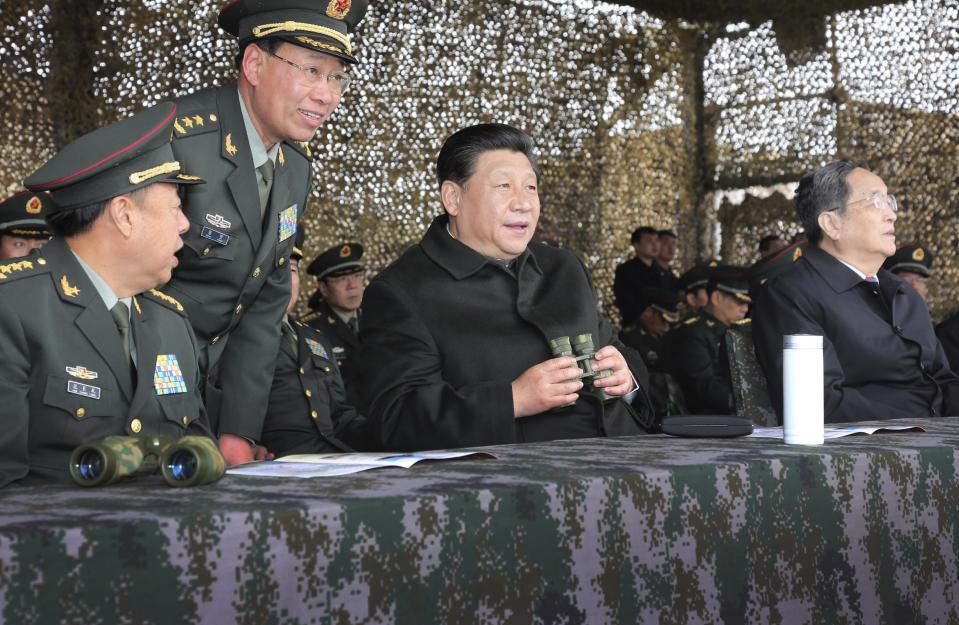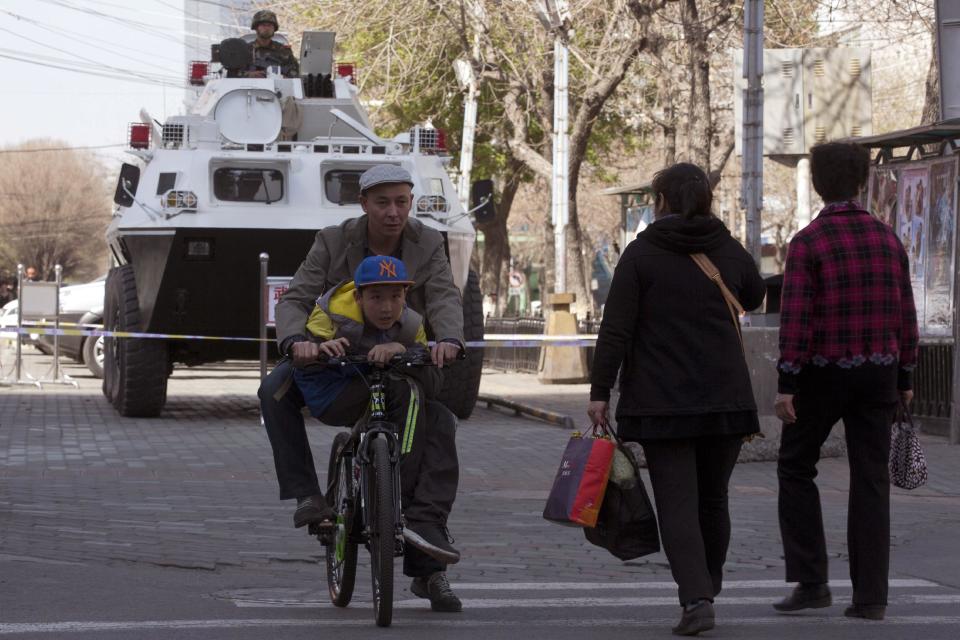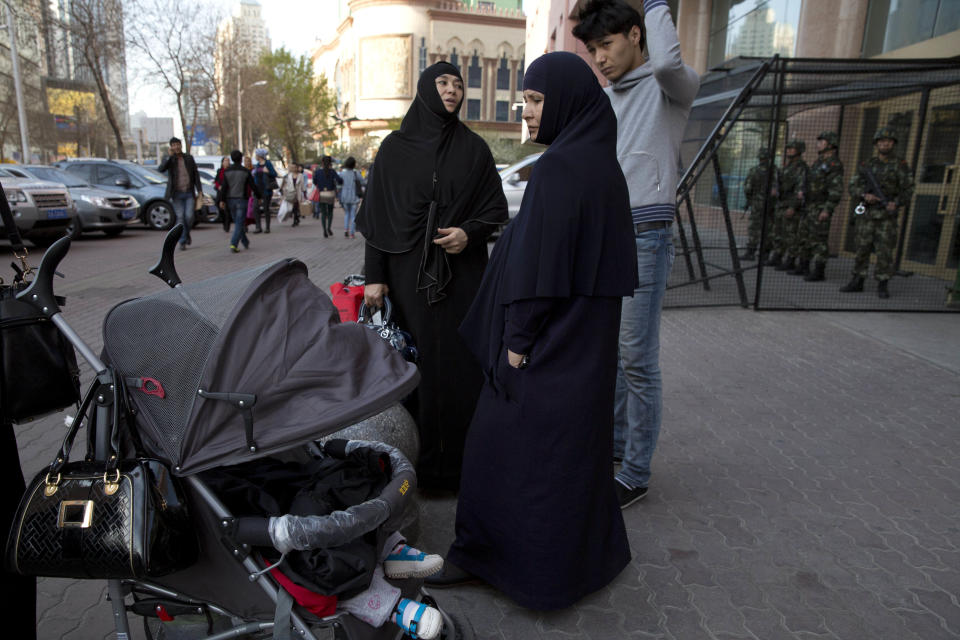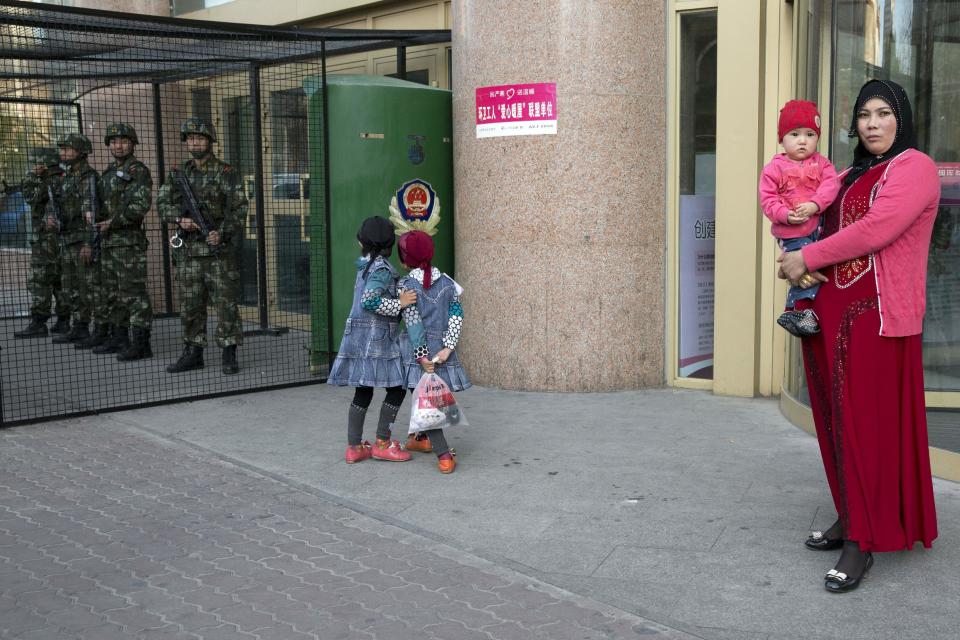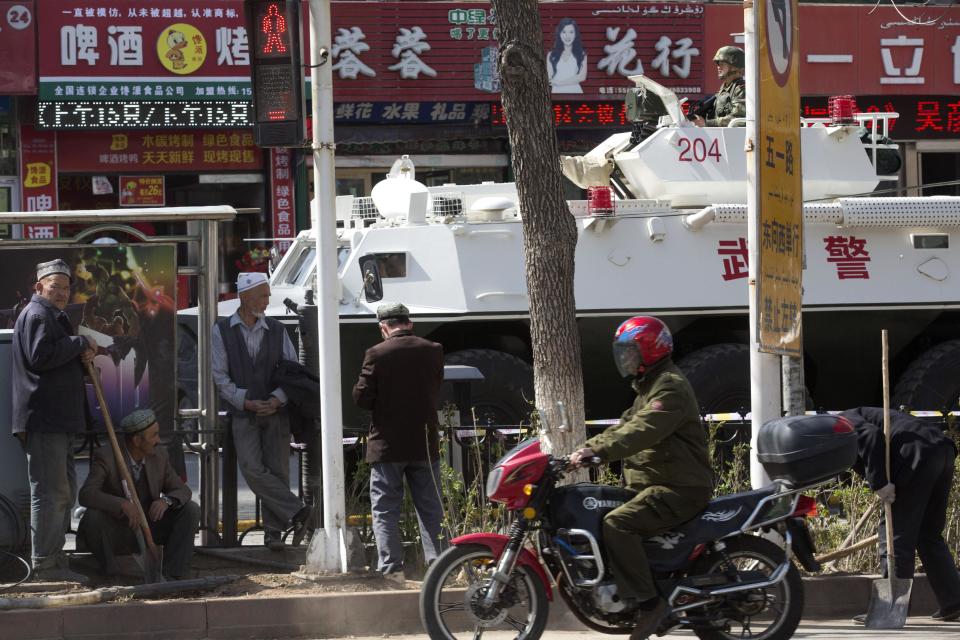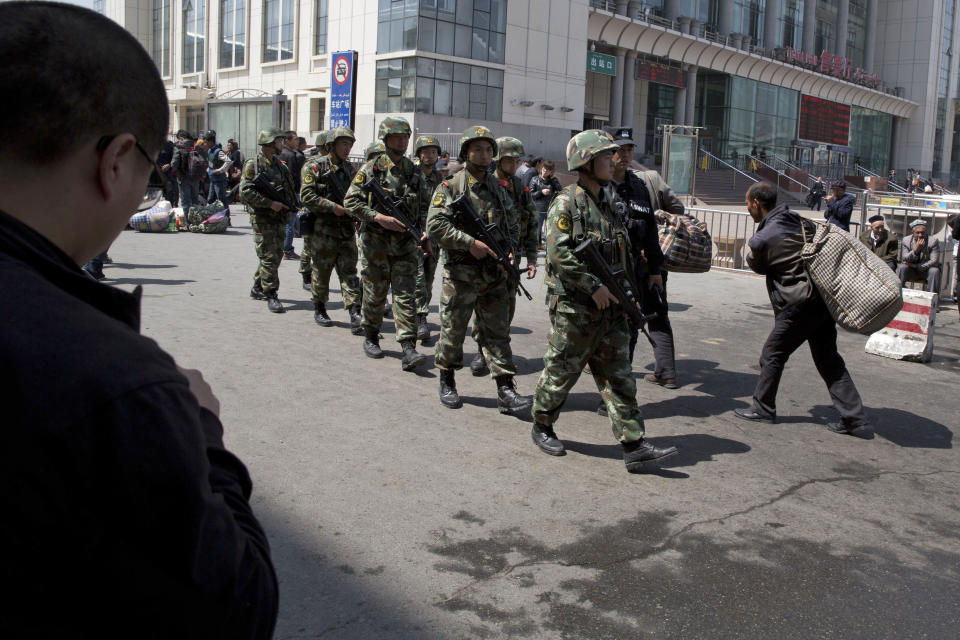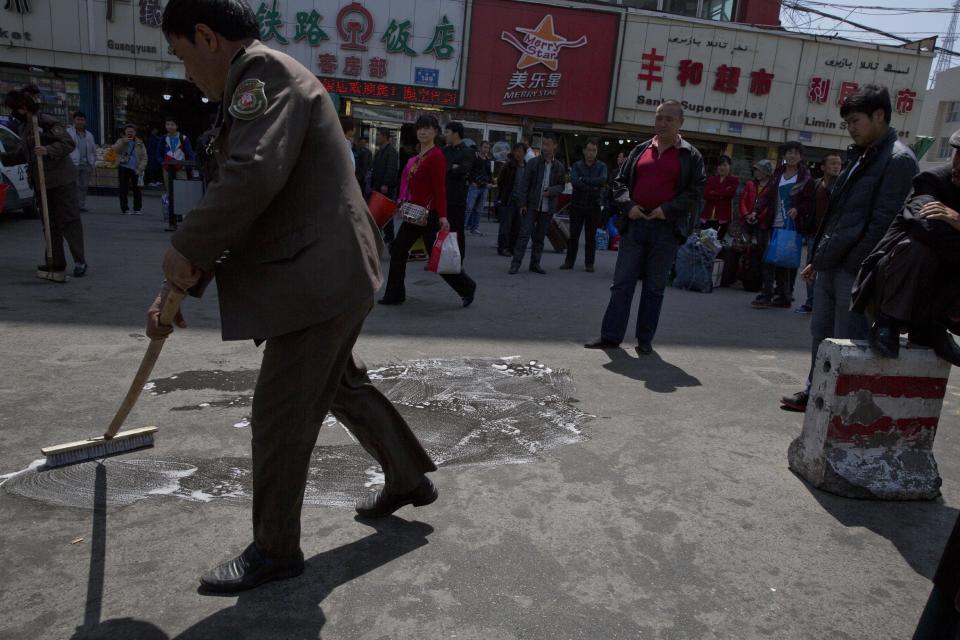Attacks show bolder terror threat growing in China
BEIJING (AP) — Recent deadly attacks in China blamed on Islamic extremists are getting bolder and bloodier, targeting civilians rather than the authorities and further challenging Beijing's ability to stop them.
The latest attack on Wednesday at a train station in the far-western region of Xinjiang — where extremists among the Turkic Uighur Muslim population have been waging a simmering insurgency against Beijing for years — left three people dead and 79 injured, prompting Chinese President Xi Jinping to demand "decisive actions" against terrorism.
Authorities said two of the dead were assailants, marking the attack as an apparent suicide bombing that hints at a further escalation in tactics, said Raffaello Pantucci, a terrorism expert at the Royal United Services Institute for Defense and Security Studies in London.
Prior to that, in March, five knife-wielding men and women believed to be Uighurs (pronounced WEE'-gurs) slashed at crowds indiscriminately at a railway station in southwestern China, killing 29 people. And last year, three Uighurs rammed a vehicle into crowds in a suicide attack near the Forbidden City gate in the heart of Beijing, killing themselves and two tourists.
While these attacks are still relatively crude and bear little sign of specialized training, they seem to have an audaciousness and deliberateness that wasn't present before, said Andrew Small, an expert on China and Central Asia at the German Marshall Fund in Washington, D.C.
"The capacity of groups inside China to mount effective, politically targeted attacks does seem to be growing," Small said. "It's a step beyond the sort of localized incidents in western Xinjiang that were taking off a few years ago."
Embarrassingly, the latest incident came as Xi wrapped up a four-day trip to the region that included a visit to an anti-terror unit and bold talk from the leader about the need to maintain social stability at all costs. It also came on the eve of the May Day holiday, possibly targeting Xinjiang's growing tourism industry.
Pantucci said the fact that the attack took place in a relatively secure major city was also significant.
"The nature of this attack and its location is a further demonstration of the growing intensity of the problems," Pantucci said.
Urumqi was the scene of ethnic riots that killed nearly 200 people in 2009, but has been relatively quiet since.
No arrests have been reported and no one has claimed responsibility for the train station attack in the regional capital Urumqi, about 2,500 kilometers (1,550 miles) west of Beijing.
For years, militants in Xinjiang have carried out attacks on police and government officials using knives, vehicles and homemade explosives. The extremists want to overthrow Chinese rule while many others want greater autonomy and freedom to practice their culture and religion.
Uighur activists say the violence is being fueled by restrictive and discriminatory policies and practices directed at Uighurs and a sense that the benefits of economic growth have largely accrued to Chinese migrants while excluding Uighurs. The knowledge that Muslims elsewhere are rising up against their governments also seems to be contributing to the increased militancy.
China's response has generally been to crack down ruthlessly on the one hand, while promising economic benefits on the other.
The most recent attacks deviate from previous ones in that they are increasingly targeting civilians and attempting violence on a larger scale, apparently pointing to a greater level of organization and planning.
Such attacks are designed to "instill fear by sheer randomness" and provoke retaliation from Beijing that would boost resentment among Uighurs and further support for the extremists, said Ahmed A.S. Hashim, a terrorism expert at Singapore's Nanyang Technical University.
China's ability to gather useful intelligence and analyze it to prevent attacks has long been criticized as weak, Hashim said, adding that security forces also lacked effectiveness.
"A purely military counterinsurgency or counter-terrorism campaign may not suffice if movement isn't made on the political front to assuage Uighur political demands," Hashim said.
It isn't clear whether the recent incidents of violence are being directed by some sort of larger organization, as Beijing frequently alleges. China has blamed numerous incidents on overseas-based separatist radicals in the East Turkistan Islamic Organization, although it has presented little evidence.
"The big unknown is whether there is now a higher level of coordination taking place, or whether these are just individual groups employing similar methods," Small said.
Hashim said he expects to see a further evolution of the Uighur insurgency, possibly into a more sophisticated form that would include the use of improvised explosive devices, car bombs, ambushes and major attacks on infrastructure.
The point, he said, would be to "undermine China's showcasing of Xinjiang as a developing region where different ethnic groups live in harmony."
A further concern for Beijing is the effect the U.S. withdrawal from neighboring Afghanistan will have on Xinjiang's security.
Instability in Afghanistan and Pakistan, where some Uighurs are reportedly hiding among jihadi groups in the lawless northwest, could allow insurgents greater freedom to set up camps and cross the border into China, Small said.
Government adviser and anti-terrorism researcher Li Wei agreed that change and instability in the fragile states along China's periphery had a direct effect on Xinjiang's security.
"Due to changes in the domestic and international situations, terrorists are becoming more rampant in some western Asian regions and some neighboring countries. Therefore, the anti-terror situation becomes increasingly serious in China," Li said.
